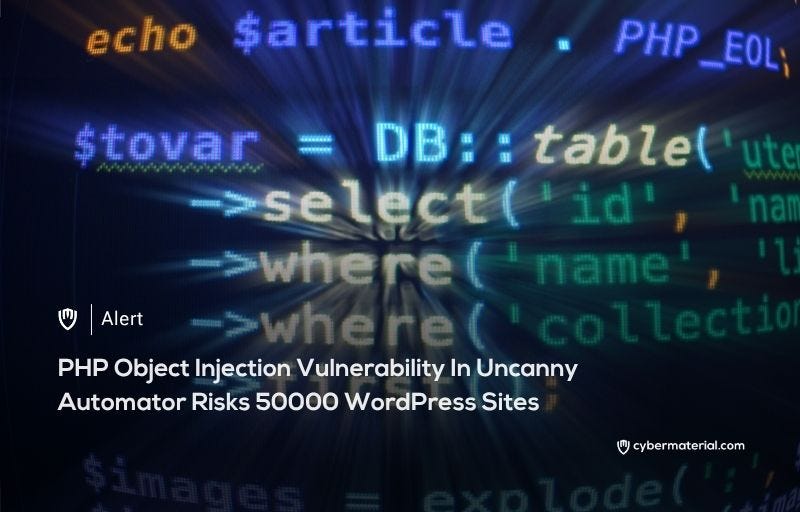
A serious authenticated PHP Object Injection vulnerability was identified. It directly impacted the Uncanny Automator WordPress plugin. This widely used plugin has over 50,000 active installations. W…

A serious authenticated PHP Object Injection vulnerability was identified. It directly impacted the Uncanny Automator WordPress plugin. This widely used plugin has over 50,000 active installations. W…